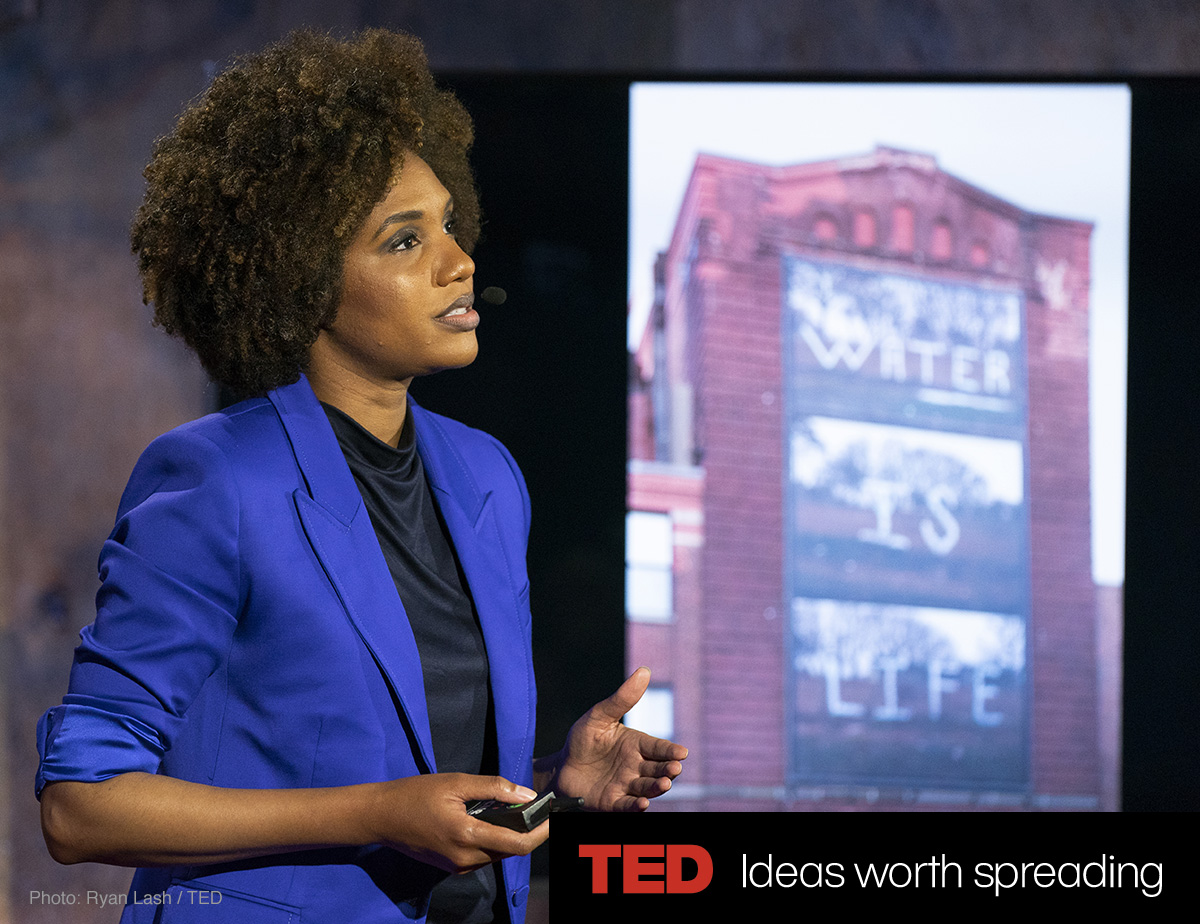Captivating Views of Community Health Workers
HUB
Johns Hopkins University
Award-winning photo series was inspired by the work of Johns Hopkins physician-researcher Lisa Cooper, her colleagues, and the community health workers who supported and served Baltimore neighborhoods during the pandemic

Lisa Cooper, Founder of the Johns Hopkins Center for Health Equity, met LaToya Ruby Frazier in 2015 at The Contemporary, a nomadic, Baltimore-based non-collecting museum that engages audiences through subject-oriented projects and educational programming. During that dialogue on creative approaches to improve society, the Liberian-born physician-researcher and the artist from Braddock, Pennsylvania, realized they were working on similar problems, using approaches informed by their unique professional and lived experiences. And Frazier became inspired by Cooper’s observation that her photographic installations could be valuable to health professionals and public health researchers working to advance health equity.
One of the nation’s leading researchers on health disparities and the creator of interventions that empower patients from socially marginalized groups to take more active roles in their care, Cooper saw in Frazier’s photography (including a series centered on Frazier’s own family) the health implications of economic distress and social inequities. Frazier captured in the series, for example, her community’s failed plight to save their local hospital from closure in 2011.

“Her art gives voice to people from marginalized groups in society who experience poor health as a result of that marginalization”
— Lisa Cooper
Cooper, a Bloomberg Distinguished Professor at Johns Hopkins who founded and leads the Center for Health Equity. “And I’ve used my expertise and platform as a physician and public health scientist to shed light on those same kinds of issues.”
Cooper also noted the similarities between Frazier’s artwork and “photovoice,” a storytelling technique used by the public health field that places cameras in the hands of participants to document their daily lives.
Cooper and Frazier, both MacArthur Fellows, crossed paths over the years as Frazier continued highlighting communities on the brink: families suffering through the Flint, Michigan water crisis, auto production workers laid off in Lordstown, Ohio, former coal mine workers in Belgium. When Frazier’s mother faced a health crisis, their relationship took a more personal turn as Cooper navigated the family toward one of her colleagues in Pittsburgh.
During the COVID-19 pandemic, the two friends found their first opportunity to work collaboratively. Cooper pointed Frazier’s attention to an unsung group in Baltimore: the community health workers who were on the ground helping residents with critical resources and information about preventing the spread of coronavirus. “I didn’t think their stories were getting told enough,” Cooper says. “People seemed to understand the role of doctors and nurses in the pandemic, but not CHWs. They weren’t heard, or seen as the heroes they are.”
[…]
Courtesy of: HUB Johns Hopkins University

